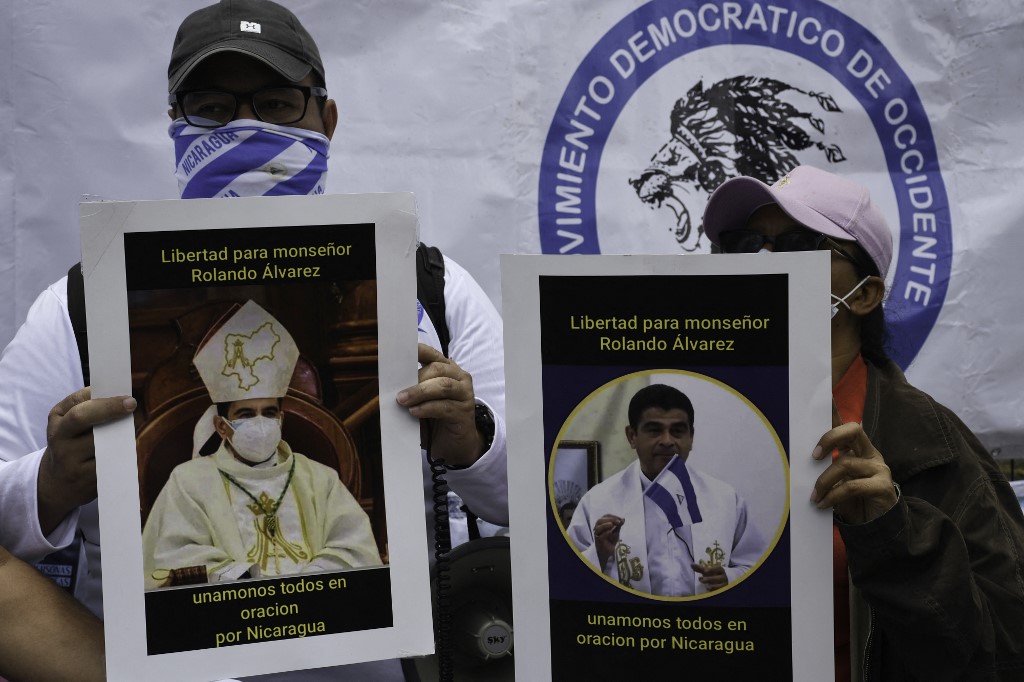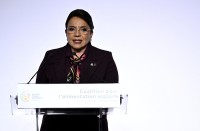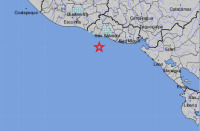
MANAGUA, Nicaragua (AFP) — A Nicaraguan bishop who has been a sharp critic of the government of President Daniel Ortega and who has been under house arrest since August was charged Tuesday with conspiracy and propagation of false news, a judicial body reported.
Bishop Rolando Álvarez, 56, was charged with “crimes of conspiracy to undermine national integrity and propagation of false news through information and communication technologies to the detriment of the Nicaraguan state and society,” the Central Judicial Complex of Managua said in a press release.
The charges were brought by the prosecutor’s office before a judge of the Managua Criminal District Court, the statement said.
The judge ordered the bishop to remain under house arrest, appointed him a public defender and scheduled the first pre-trial hearing for January 10, 2023.
Alvarez, bishop of the diocese of the northern department of Matagalpa, was taken by police to Managua on August 19 and placed under house arrest, after being held for two weeks inside his residence.
After his arrest, police said the bishop, who is also a member of the Nicaraguan Episcopal Conference, was being investigated for trying to “destabilize the country.”
Along with the bishop, six other religious figures were also arrested in August and detained in a Managua jail, without the charges being disclosed.
On Tuesday, the prosecutor’s office also filed charges against Uriel Antonio Vallejos, parish priest for the city of Sebaco in the center of the country. He was declared a “fugitive from justice” and a warrant for his arrest was delivered to Interpol, the authorities said.
The charges against Alvarez come amid tense relations between the Catholic Church and the Ortega government that began in 2018, when the country was rocked by huge anti-government protests.
The president linked the demonstrations to a failed coup he said was being pushed by the opposition with the support of Washington and accused bishops of being complicit in the alleged plot.
Earlier this year the government expelled apostolic nuncio Waldemar Sommertag, outlawed the Missionaries of Charity Association, of the order of Mother Teresa of Calcutta, and closed several Catholic media, including the television channel of the Episcopal Conference.
© Agence France-Presse








